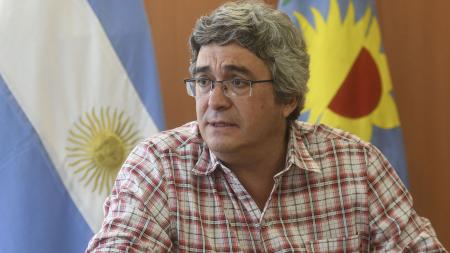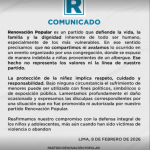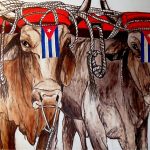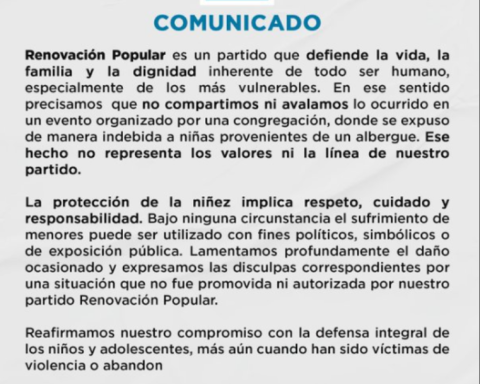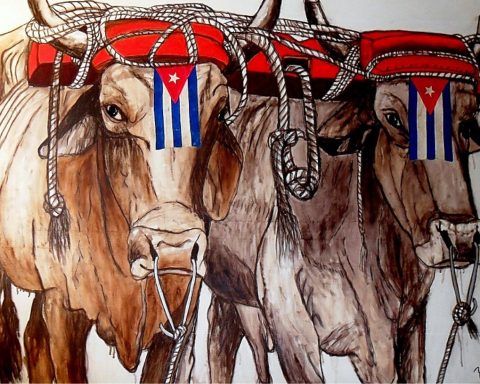The Buenos Aires Minister of Agrarian Development, Javier Rodríguez, highlighted the productive and credit policies for agriculture promoted by the provincial government and said that the situation of the sector “immediately will be marked by the weather”, due to the implications of the drought on planting and livestock.
In an interview with Télam, Rodríguez pointed out that “many of the concerns are encrypted from now on with respect to summer crops” and that the latest rainfall allowed progress in planting.
Below are the main sections of the report with Télam:
-What panorama do you have of the drought in the province?
-There was indeed an affectation. The dry cycle started in March and April and lasted until October in some places and still continues in others. This first affected wheat and barley, but also livestock and other productions that use pastures and grains. Based on this, in the province we have already declared 57 municipalities in emergency. Many of the concerns are coded from now on with respect to summer crops. We are seeing that although a month ago and a little more the delay in planting was very marked, with the latest rainfall it has tended to take the values of the previous years, always speaking of surface. In corn there is still a delay in planting of the order of 15%. So we are evaluating and following up on what will happen from now on. We work quickly with the producers who were affected, on the one hand, to generate the emergency mechanism, which allows certain tax benefits and, on the other, to arrange lines of financing so that they can face the campaign.
-What situation do you see for the year about to begin in this sense?
– The panorama in the immediate future will be marked by the weather. We had a management very marked by the pandemic in the first two years and in the third by the war (between Russia and Ukraine) that modified the prices of both products and supplies and by the drought. In this context, we evaluated an indicator that is important, which is the areas of cereals and oilseeds, which were growing in these periods. In the previous campaign, also a record for wheat production, the surfaces had a greater expansion than in the previous period. But the climatic condition reduces the yields and means that the production volumes do not set that record. However, this expansion is largely driven by the greater abundance of credit as one of the elements that allows and allowed the increase in area. Regarding other activities, the growth that occurred in meat production and the evolution of milk production, which fell drastically in the 2015-2019 period, are important. The cycle was reversed and now the latest data up to October gave us national growth.

-Some sectors say that the government carries out “anti-productive” policies. What do you say to this?
-It is clear that this is a government that promotes production, that has a productive outlook, that has a scheme and a set of productive development measures that of course include the agricultural sector. We have been showing in the facts that there is a productive policy in the province and that this has several pillars. It is a comprehensive policy that has to do with financing, infrastructure, adding value and food production.
-What conclusion do you draw from these three years of management and what is the plan for 2023?
-I think that when we took office there were many questions about what the management of Governor (Axel) Kicillof was going to be like. And in these three years we were able not only to show, but also to implement a productive policy that includes all sectors, including the agricultural sector. The province is the productive engine of Argentina, but it is also very important for both agricultural and industrial production. Being able to implement policies at the provincial level with a specific perspective is something fundamental and this is seen with greater investments in infrastructure, financing and support for different productions. It also has to do with a look that understands that public policies have to be segmented, oriented more to the medium and small producer. When we started the management we found a province that was past land. There was nothing. It came from a very large reduction in the number of dairy farms, small and medium producers and family farming in an absolutely critical situation and in these three years we have been building public policies, which did not exist when we arrived at the ministry. They did not have a specific view of the province, they only took a national level program in its implementation and did not develop any specific line of work. We were developing them and it is allowing to generate transformations.
-An electoral year is coming, how do you see the political panorama?
-It is clear that substantially different models are put into play. One that we already know, that we saw in the period of (Mauricio) Macri, of concentration of income and reduction of the rights of the enormous majorities under the different forms in which they appear, linked from the rights of retirees to issues such as The education. We see it when in Deputies the opposition does not want to give a quorum to approve the creation of new universities. And another model that tends to strengthen workers and workers, to expand rights. That is what this is putting at stake in an election year. From Together for Change it is not that they are saying that they are going to do something different, but that they are going to do the same, in a more abrupt way. In an extremely complex context at the international level, we understand that there are difficulties in proposing a productive model that allows improving the living conditions of the population, but we are clear that it is on this side. Today there is growth and employment is good, but we know that we have a key issue to address, which is to reduce inflation and ensure that wages grow above inflation.
